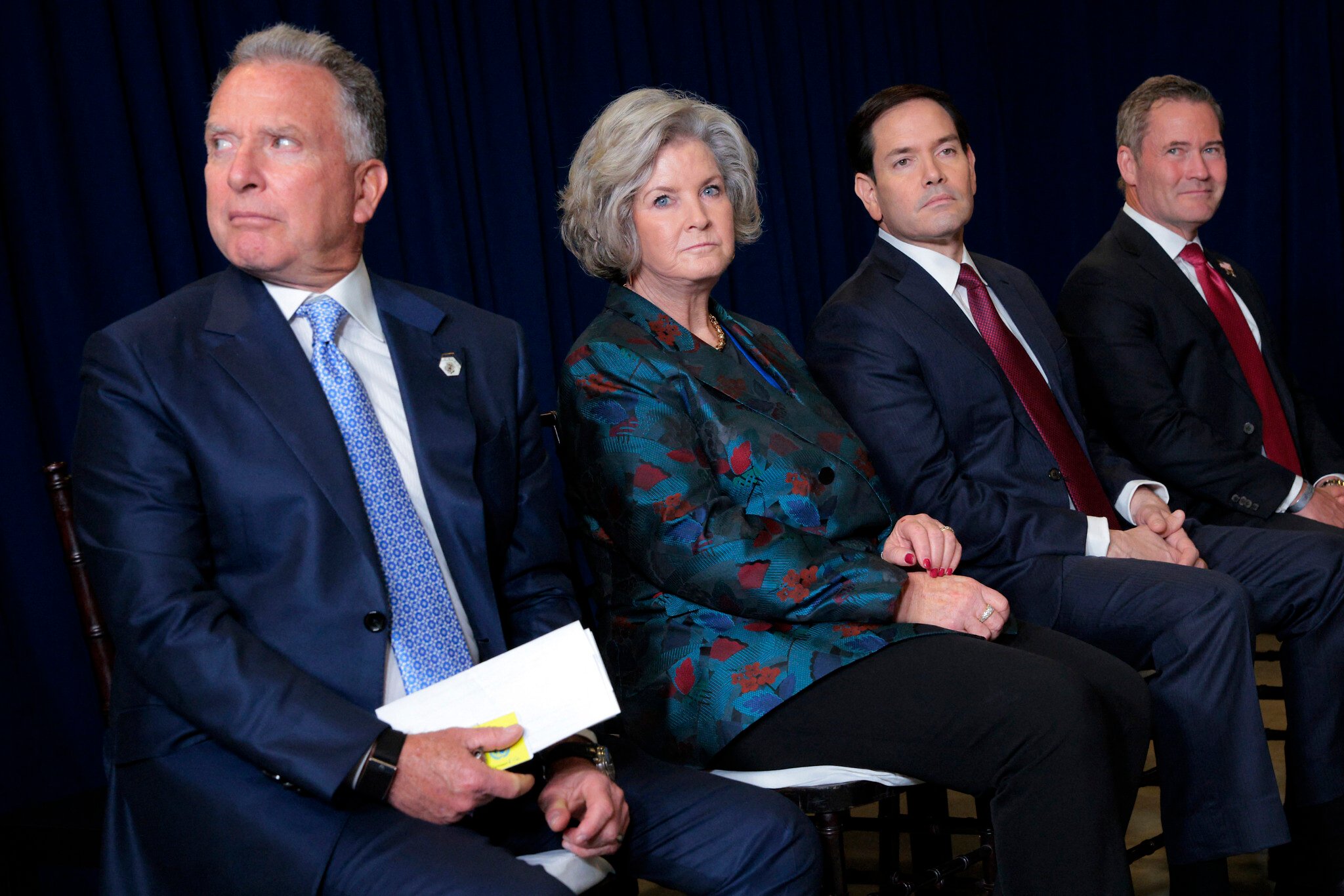


US envoy Steve Witkoff said Wednesday he expected a breakthrough related to Gaza in the coming days, saying US President Donald Trump had presented a plan to regional countries.
Witkoff, a real estate friend of Trump who has become his roving ambassador and the US Special Envoy to the Middle East, said the US president shared ideas when meeting with a group of Arab and Islamic countries on Tuesday on the sidelines of the UN General Assembly.
“We presented what we call the Trump 21-point plan for peace in the Mideast and Gaza,” Witkoff said.
“I think it addresses Israeli concerns as well as the concerns of all the neighbors in the region,” he told the Concordia summit on the sidelines of the UN General Assembly.
“We’re hopeful, and I might say even confident, that in the coming days we’ll be able to announce some sort of breakthrough.”
A joint statement from the governments represented in Tuesday’s meeting said the leaders had “reiterated their commitment to cooperate with President Trump, and stressed the importance of his leadership to end the war.”
The meeting included representatives from Saudi Arabia, the United Arab Emirates, Qatar, Egypt, Jordan, Turkey, Indonesia, and Pakistan.
French President Emmanuel Macron, who also met with Trump on Tuesday, said he expected the plan, which Witkoff did not detail, to include elements he presented to the US president.
Macron has promoted a plan that would include the dismantling of Hamas and an international force to stabilize war-ravaged Gaza.
“The United States is now going to absorb that, so to speak,” Macron said in an interview jointly with France 24 and Radio France Internationale.
“I think that if we can align everyone — the United States, the Arabs, the Europeans — around this peace plan, we can have a result,” Macron said.
Macron also on Monday led a summit that recognized a Palestinian state, an initiative strongly opposed by Trump and Israel.
But Macron said that Trump shared opposition to Israeli annexation of the West Bank, a threat made by right-wing Israeli ministers to scuttle the prospects for a Palestinian state.
“What President Trump told me yesterday was that the Europeans and Americans have the same position,” Macron said.
Witkoff and Trump have repeatedly voiced hope for ending the devastating, nearly two-year war, which began when Hamas launched its shock cross-border assault on Israel on October 7, 2023, killing some 1,200 people and seizing 251 hostages. Of those hostages, 47 still remain captive, and Hamas is also holding the body of an Israeli soldier killed in Gaza in 2014.
Secretary of State Marco Rubio was more somber on a trip last week to Israel, which has launched a massive new offensive to seize Gaza City.
While the details of Trump’s plan have not been made public, Israel’s Channel 12 reported on Wednesday evening that senior Israeli officials do not believe the president will “force a proposal on Israel it doesn’t believe in.”
Unnamed senior officials told Channel 12 that Jerusalem sees Trump’s 21-point plan as a framework for creating a “day after” in Gaza, in cooperation with moderate Arab states.
According to the outlet, the Trump administration hopes that the framework will mobilize the Arab states — which the report does not identify by name — into pouring money into the war-torn Strip and rebuilding its civilian infrastructure.
Trump is due to meet with Netanyahu in Washington on Monday.
Ahead of his departure for the UN General Assembly in New York, where he is due to speak on Friday, Netanyahu was said to have told his ministers that he and Trump will discuss possible responses to the wave of announcements from Western countries recognizing a Palestinian state.
He reportedly insisted to the ministers that any move Israel may want to make — such as annexing a portion of the West Bank — would need Trump’s approval.
Earlier this week, a senior Israeli official told The Times of Israel that the Trump administration had privately cautioned Israel against annexing the West Bank in response to Western recognition of a Palestinian state.
Publicly, however, Washington has avoided taking a public stance regarding potential Israeli annexation of the West Bank and has argued that Western countries are to blame for Jerusalem considering the step due to their decisions to recognize a Palestinian state.
Jacob Magid contributed to this report.



